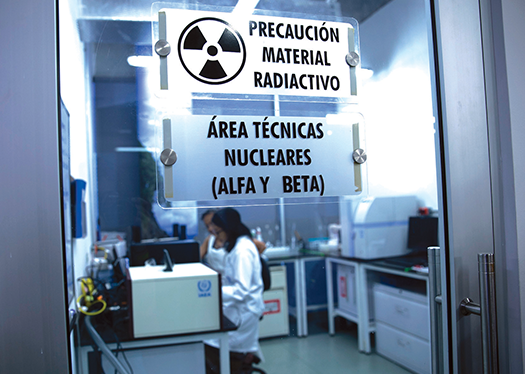
Researchers at work in Invemar lab in Santa Marta, Colombia. Experts say nuclear science has become a useful tool in gauging the potential impacts of climate change on marine life. (Photo by IAEA ImageBank)
In some of the same ways it is employed to unravel archeological mysteries, nuclear science is being used to understand climate-change impacts. Among these is a major problem threatening Latin America and the Caribbean—ocean acidification and the damage it is doing to marine life. Ocean acidification, a reduction in the ocean’s pH levels, is caused by seawater’s absorption of carbon dioxide (CO2) from the atmosphere. As ongoing human use of fossil fuels boosts CO2 concentrations in the air, greater amounts of the gas dissolve in seawater, making the oceans more acidic. Acidification of seawater has been found to affect corals, crustaceans, mollusks, and other marine life that is key to coastal ecosystems and communities in Latin America and the Caribbean. It does so by hampering the ability of marine animals to grow skeletons and shells, earning the nickname “osteoporosis of the sea.” Nuclear science is being brought to... [Log in to read more]